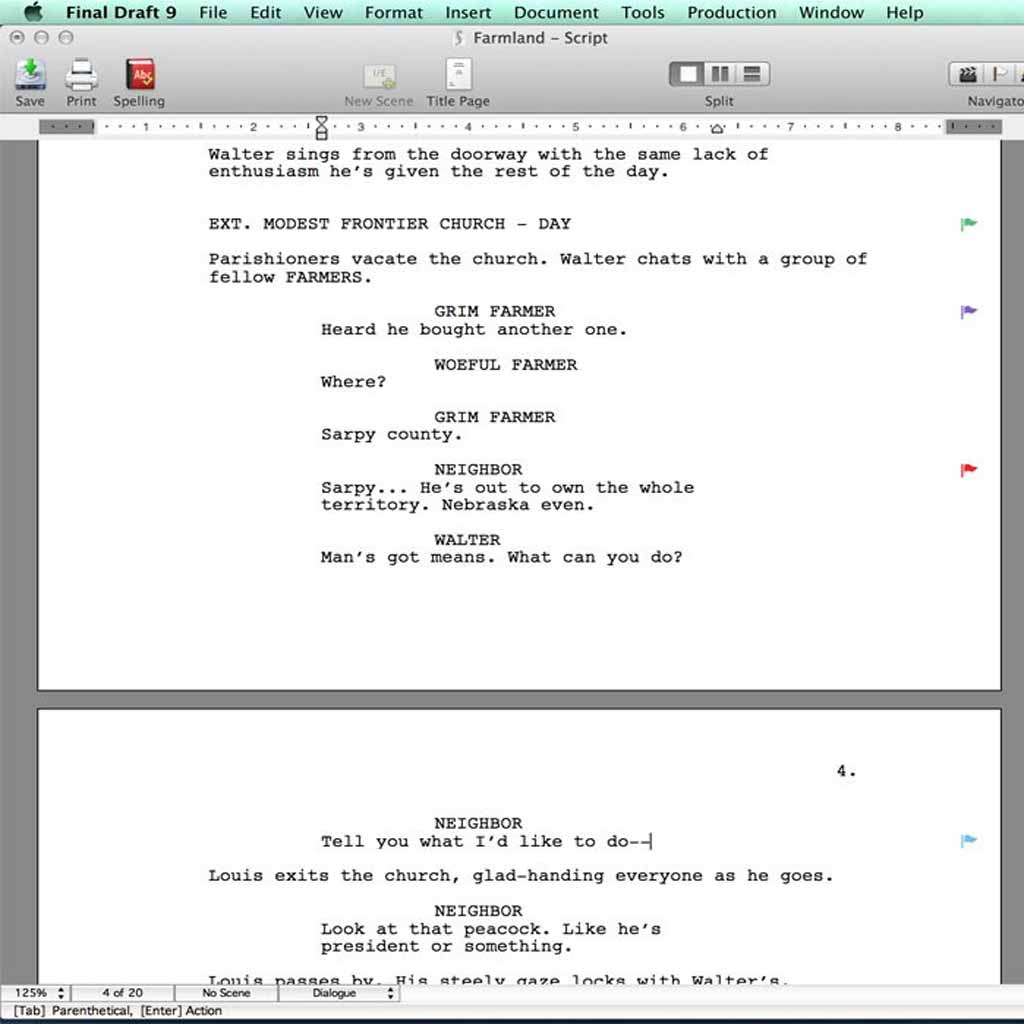Screenwriting conjures images of eager creatives pounding away at their masterpiece script on the next big blockbuster. They make writing the next great movie seem so easy.
But talk to any produced screenwriter and they’ll assure you otherwise – excellent screenwriting requires substantial practice and skills to master. Crafting scripts that sell and resonate with audiences can be much more complicated beneath the surface.
But how difficult is screenwriting really? Let’s hash out an honest assessment.
What Does a Screenwriter Do Exactly?
Before judging the difficulty, it helps to level-set exactly what skills screenwriting demands day to day. Screenwriters are responsible for:
- Creating the story, characters, dialogue, and narrative structure for a film from scratch
- Formatting all those creative elements properly into an industry-standard screenplay document
- Writing in detail scenes, action sequences, character interactions, and directions to explicitly guide the filming process
- Executing rewrites and edits based on producer or studio feedback to finalize drafts
- Pitching concepts to production companies and defending creative choices
With all that in mind, judging difficulty means analyzing the level of effort for a writer to sufficiently perform those responsibilities at a production-worthy level consistently. And contrary to some viewpoints, excellent execution here requires much more practice than many assume.
Why Some Wrongly Believe Screenwriting Is Easy
Search online and you’ll find no shortage of posts insisting writing scripts is straightforward. And yes, core concepts around screenplay format and structure may only take a few weeks to pick up. Even screenwriting software makes formatting effortless nowadays.
But doing the actual creative writing at a high level is far more complicated. Often people falsely assume that since everyone watches movies, everyone has stories to tell, and software handles formatting – how hard could professional scriptwriting be?
Additionally, the rise of high-level TV series demonstrates the demand for good content. Showrunners seemingly scramble to greenlight all kinds of scripted pitches. This makes breaking in feel more accessible than ever.
While true to some degree, writing episodes or features that captivate audiences consistently at a pro level still requires extraordinary skills. Even amongst writers who get representation or sell a pilot – climbing the ranks in Hollywood from there can still prove quite difficult.
Let’s overview why excelling at screenwriting craft presents much more challenge than simply learning script formatting and having imaginative ideas.
Key Difficulty Factors That Complicate Screenwriting Mastery
Mastering screenwriting, like most disciplines, requires first comprehending core theory and then evolving those concepts into practical skills through deliberate practice. Screenwriting has several key difficult facets that require substantial practice to perform at a noteworthy level including:
Formatting Complexity
Proper script formatting establishes critical visual hierarchy, pacing, and context for readers. While software assists, writers must still seamlessly integrate tense dialogue, action descriptions, scene transitions, character introductions, and more.
This requires learning an entirely new writing style. For those accustomed to prose or stage plays, adapting to screenplays presents a challenge.
Story Structure Mastery
Script structure in the three-act format creates expectations for major plot points, antagonist escalations, character arc pivots, and more precise timing.
An excellent grasp of story structure and how audiences anticipate story unfolding is vital. This comes primarily from screenplay study and trial-and-error writing original scripts.
Memorable Character Development
Beyond just protagonists and antagonists, all major characters in the film need unique voices, memorable quirks, clear motivations, and realistic dialogue.
Distinguished characters connect with audiences and make stories compelling. But weaving distinguishable personas into narratives requires insight and deliberate choice-making word-by-word – difficult skills to hone.

Crafting Clever Dialogue
Unlike novels that use narration, scripts relay backstories, reveal emotions, and build tension primarily through character dialogue exchanges.
That means writing sharp, quick, revealing dialogue without relying on explanatory context. This too presents quite the challenge for writers more comfortable explaining behavior explicitly.
Scene Detailing Without Overwriting
Scripts only showcase final products so writers must define explicit details of locations, actions, wardrobe, and props. But simultaneously avoid over-descriptive dense blocks of text for quick reads.
Finding this balance between detail and brevity in action lines proves one of the most common novice struggles.
Writing Visually
Screenplays are fundamentally blueprints for visual media so writers must define scenes intentionally to translate visually for directors.
Describing critical visible elements while leaving specific shot choices and camera work flexible enough for later interpretation. This requires experience studying films and understanding directing.
Pacing and Editing Cohesion
Script rewrites often radically add, remove, or rearrange scenes as stories evolve. Maintaining consistent character choices, seamless narrative flow and appropriate pacing without plotholes across revisions is supremely difficult. Crafting cohesive scripts from start to finish tests even veteran writers.
As evidenced above, screenwriting has several key facets ripe with intricacies that require intentional skill-building over an extended period. Next, let’s overview where many find early success.
What Makes Screenwriting Easier to Start With?
While mastery takes time, screenwriting benefits from a few fundamental elements that make it easier for novices to start writing scripts or breaking into the industry such as:
Basic Software
Affordable screenwriting software like FinalDraft contains templates and auto-formatting functions to handle styling and organization. This allows writers to bypass early formatting struggles and focus efforts instead on storytelling.

Straightforward Script Elements
Core screenplay components like scene headings, action lines, transitions, and character names have straightforward conventions that are easily teachable. Basic script literacy takes only days to pick up, unlike prose.
Abundant Learning Resources
A plethora of blogs, video essays, online courses, and screenwriting books make learning script theory very approachable. Aspiring writers can conveniently build foundational knowledge cheaply.
Creative Concept Ideation
Conceptualizing original characters, worlds, and imaginative ideas requires creativity more than refined writing prowess. This makes the earliest phases of screenwriting intrinsically rewarding and thus easier to latch onto at first.
Passion for Filmmaking
Most screenwriters intensely study films long before attempting scripts. Their innate passion for cinematography inherently motivates them to learn scriptwriting to someday actively contribute on set. Purpose-driven progress always seems faster.
So while the concept ideation and creative aspects of screenwriting ignite passion in beginners, transforming those ideas successfully into well-structured easily digestible scripts on paper is where much of the real challenge lies for aspiring writers.
Improving Screenwriting Skills
Nobody writes excellent screenplays on their first try. Like all skills, writers develop mastery from deliberate screencraft education and hands-on practice. For those finding early concepts simple but execution still difficult, here are tangible next steps:
Read Quality Scripts Extensively
Much like musicians must listen intently to songs to absorb techniques, writers must study professionally written scripts to comprehend strong structural choices in narratives they already connect with emotionally as a fan. This immersive script reading breeds instinctual understanding over time.
Take Screenwriting Courses
Whether online or in-person creative writing courses, structured education from experienced teachers provides customized feedback needed to identify blindspots when attempting new or more advanced scriptwriting concepts built on foundations.
Invest Time Workshoping and Rewriting
Writing groups connect writers to swap peer feedback on snippet drafts or entire concepts. Hearing raw critiques rather than empty praise accelerates the improvement process so writers can address weak spots. Tough rewriting refines fluidity.

Hone Technical Elements Individually
Even seasoned writers continually hone elements like crafting subtext in dialogue, improving action line concision, or adding thematic symbolism because concept-to-page execution always has room for refinement towards excellence.
Start Small Without Expectations
Resist pressures to start with a sprawling feature film or series bible. Consider short film scripts, commercial spots, or genre adaptations instead. This lowers complexity substantially so writers can focus less on word count and more on technical precision while building confidence.
Use Contests For Structured Deadlines & Feedback
Entering screenwriting competitions forces meeting rigid deadlines and provides judge feedback from more qualified industry folks than friends or family. Having timeframe goals raises accountability while exposing areas for growth.
Put in practice and screenwriters unlock the secrets behind transforming imaginary ideas into skillfully-written scripts ready for the silver screen.
The Difficult, Rewarding Reality of Screenwriting
While no universally defined threshold declares writing “good enough“, understanding what genuine scriptwriting mastery entails allows writers to set realistic expectations around growth.
The fact is – screenwriting has understandable basics but truly mastering the craft discipline takes significant practice.
Don’t allow the glamorization of Hollywood blockbusters to diminish the consistent effort behind the scenes delivering those stories from script to screen. Respect the work.
For many, simply completing that first draft brings such fulfillment making the screenwriting journey worthwhile regardless. There are no shortcuts to excellence.
But committing to continual measured improvement through deliberate education and applied practice? That is fully within every passionate writer’s grasp.
Frequently Asked Questions
How hard is it to get into screenwriting?
Getting into screenwriting itself is easy since anyone can write a script, but becoming a professional screenwriter selling scripts and getting hired for productions is very difficult. Only the top 1-2% reach commercial success. It takes years to not only craft writing skills but also develop industry connections.
What is the hardest part of writing a screenplay?
Most writers find moving from an initial concept and early pages into executing a satisfying third-act resolution for feature films exceptionally difficult. Wrapping up so many character and plot threads cohesively gives even seasoned screenwriters notoriously “third act problems”.
Is being a screenwriter stressful?
Yes, since income and production decisions depend heavily on exec reactions to scripts, waiting through long revision notes processes or competing for high-pressure assignments creates immense writer stress. Rejection sensitivity makes coping difficult.
What is the success rate of screenwriters?
Statistically, only 1-2% of active screenwriters reach a “professional” level where writing income sustains their livelihood. Of the Writers Guild of America members, about 10% regularly work on productions. Success metrics vary by writer goals, but nearly all pursue entertainment careers for a long time without financial consistency.
Are screenwriters in high demand?
Yes, as the volume of new streaming services and episodic content rises exponentially, industry demand for experienced screenwriters certainly increases albeit very competitive particularly at the highest budget/compensation tiers. Overall more opportunities exist now than ever before.
Do screenwriters make a lot of money?
Most do not as writing theft concerns restrict pay for unproduced screenplays. The WGA reported average yearly income for members around $92k, but entry-level writers often earn below minimum wage measured hourly given long development times without payment guarantee. Writers’ rooms pay better. High-level screenwriters contracting for studio films command the highest salaries.
What genre is the hardest to film?
Thrillers and heavily CGI-reliant action franchises often prove the most difficult to shoot from a production standpoint. But dramas focusing on raw human emotion frequently challenge writers the most requiring greater nuance compared to fast-paced exciting external genres.
What is the #1 rule when writing a screenplay?
Don’t direct on the page. Writers should tell compelling stories invitingly rather than forcing contrived overly descriptive technical choices better left for actual directors later on. Adaptability makes scripts more sellable.
What are the three C’s of screenwriting?
The primary goals of successful scriptwriting center on Crafting Compelling Characters. Writers placing equal importance on carefully sculpting robust protagonists internally over prioritizing intricate plot complexity or worldbuilding details often achieve greater audience connection overall. Character is the story.

